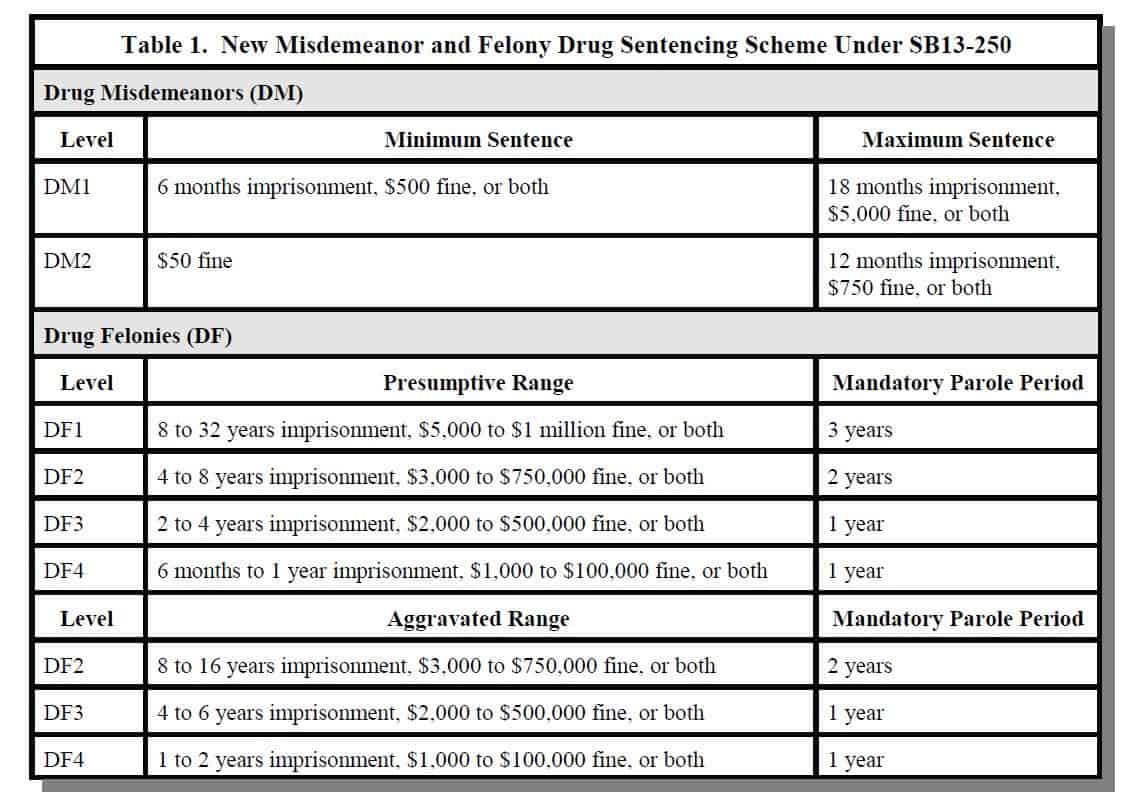I have to pay…..WHAT? Court Costs/Fee and Surcharges vs. Fines for Crimes vs. Restitution

You’ve just been sentenced in a criminal case and received a sentence to probation, community corrections, or department of corrections (prison), AND you remember hearing the judge say she wasn’t going to fine you as well. But now you’re told there is a hefty bill with your name on it for several thousand dollars. What happened?!
Criminal Fines:
Below is a general chart that provides basic information as to penalties for misdemeanors and felonies in Colorado. Do note that there are many factors in the law that change the ranges of penalties for some crimes in certain situations.



Using the above as a general example, let’s assume you plead guilty and were sentenced to a Level 1 Drug Misdemeanor (“DM1”) and you were granted probation.
The judge, in addition to probation, could also asses a fine against you of $500-$5000. Lucky you! The judge says she won’t fine you. Yet you meet with probation, and they says you owe $2000 – what happened?!
Criminal Surcharges / Court Costs / Funds
By statute, our government has created laws to asses surcharges and fees against criminal defendants. These are kind of like taxes, you don’t know exactly how much it will be until after you plead guilty and are handed a bill. Generally, a judge cannot waive these surcharges and fees unless a person proves they are indigent and are unable to pay.
Here is an example of fees and surcharges but not fines assessed on drug misdemeanors which include the probation supervision fee for 18 months.

You can see how your bill can quickly escalate even if the judge doesn’t fine you. It is very important at sentencing you have a knowledgable attorney to present evidence or argue to the judge if you are indigent to waive all costs and fees, not just fines, if you qualify.
These costs accumulate based on whatever level of crime you are convicted of ultimately and whether you are sentenced to probation and for how long, vs incarceration. But the above gives you an idea of the variety of funds and surcharges out there that you could be held accountable for paying.
Restitution
Restitution is not a fine or fee or court cost. It is the amount owed to a victim of a crime to make them whole again.
For example, you steal a $1700 bike and pawn the bike for the $1000 cash, and spend the cash. Several months later you are charged with the crime, and several more months down the line you are convicted of the crime. Now the victim wants the $1700 for their bike, plus the amazing top of the line $180 bike lock you allegedly cut, plus the $300 super-duper bike seat that was on the bike you don’t remember and didn’t get paid for by the pawnbroker. At sentencing, the DA will request you pay restitution in the amount of $2180 to make the victim whole again. The issue at sentencing or a restitution hearing will not be that you only received $1000 and the money is gone, it will be how much the items stolen reasonably cost to replace at the time they were stolen.
An experienced attorney is necessary to ensure you are being assessed the appropriate restitution and not all the additional amenities that were on the bike that the victim recalls at sentencing but failed to note in the original police report. In fact, our Firm has conducted numerous restitution hearings to determine the legal, reasonable amount of restitution owed; if any.
Something to keep in mind if you are on the line for more than a bike – restitution cannot be discharged in bankruptcy proceedings. You will be required to make minimum payments for as long as necessary.
Disclaimer: The information in this blog post (“post”) is provided for general informational purposes only, and may not reflect the current law in your jurisdiction. No information contained in this post should be construed as legal advice from Muhaisen & Muhaisen, LLC. or the individual author, nor is it intended to be a substitute for legal counsel on any subject matter. No reader of this post should act or refrain from acting on the basis of any information included in, or accessible through, this Post without seeking the appropriate legal or other professional advice on the particular facts and circumstances at issue from a lawyer licensed in the recipient’s state, country or other appropriate licensing jurisdiction
